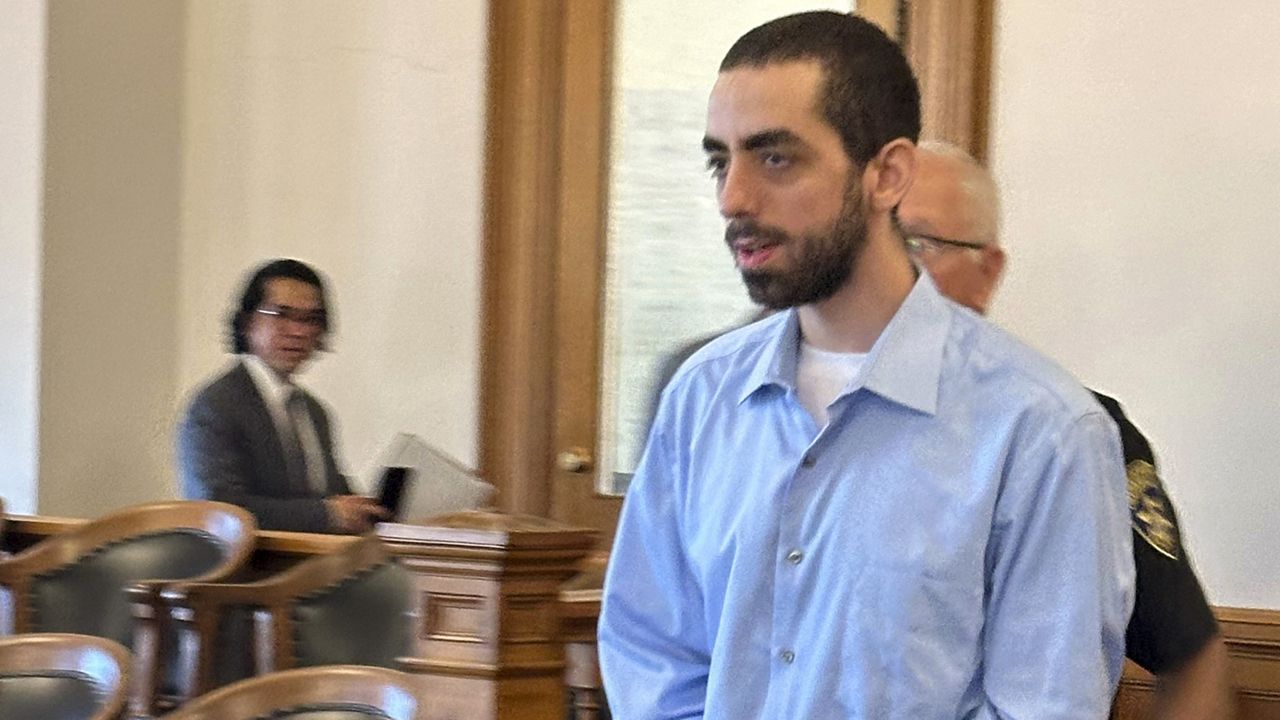When Britney Spears speaks to a Los Angeles judge at her own request on Wednesday, she’ll do it 13 years into a court-enforced conservatorship that has exercised vast control of her life and money.
The “...Baby One More Time” singer petitioned the court for an expedited hearing in mid-April, nearly a year after Spears first requested major changes be made to the conservatorship run largely by her father, James Spears.
Britney Spears, who turns 40 this year, has rarely spoken publicly about the conservatorship since it was imposed in 2008. But according to court documents recently obtained by The New York Times, the pop star has reportedly been fighting behind-the-scenes for years to change or altogether terminate the conservatorship.
Spears’ relationship with her father is expected to take center stage at Wednesday’s hearing, although it’s unclear if the court testimony will be open to the public.
Here’s a look back at the history of Britney Spears’ conservatorship:
When a person is considered to have a severely diminished mental capacity, a court can step in and grant someone the power to make financial decisions and major life choices for them.
California law says a conservatorship, called a guardianship in some states, is justified for a “person who is unable to provide properly for his or her personal needs for physical health, food, clothing, or shelter,” or for someone who is “substantially unable to manage his or her own financial resources or resist fraud or undue influence.”
The conservator, as the appointee put in charge is called, may be a family member, a close friend or a court-appointed professional.
In 2007 and 2008, shortly after she became a mother, Spears began to have very public mental struggles, with media outlets obsessed over each moment. Hordes of paparazzi aggressively followed her every time she left her house, and she no longer seemed able to handle it.
She attacked one cameraman’s car with an umbrella. She shaved her head at a salon. She lost custody of her children. When she refused to turn over her boys after a visit, she was hospitalized and put on a psychiatric hold. The conservatorship was put in place within days.
From 2008 until 2019, James Spears — Britney Spears’ father — had power over her life choices, and he and attorney Andrew Wallet controlled her money.
James Spears’ role gave him great control over his daughter’s personal life, including the power to make her medical decisions and her business deals.
During the decade-plus that James Spears served as conservator of Britney’s personal and financial wellbeing, the singer debuted numerous albums, participated in a world tour, served as a guest host on “The X Factor” and held a multi-million dollar residency in Las Vegas.
All the while, James Spears received a salary to act as his daughter’s conservator in addition to getting commission on ticket sales, merchandise and performances his daughter made.
He stepped down as conservator of Britney Spears’ personal life in mid-2019, citing health issues. Now, James Spears has financial control only, and must share that role with the Bessemer Trust, an estate-management firm. Jodi Montgomery, a court-appointed professional, now acts as conservator over Spears’ personal matters.
Britney Spears has acknowledged that the conservatorship was necessary when it began, and probably saved her career, and she remained silent both in public and in court for nearly all of its existence.
While a conservatorship can always be dissolved by the court, it’s rare that a person successfully asks to be released. The burden is on them to prove their competence.
Conservatorships can last decades, because few of the circumstances that lead to them are temporary. The mandatory secrecy of medical records has kept murky the reasons why Britney Spears must remain in hers, but it’s clear that it involves psychiatric issues. A recent filing said that she wasn’t capable of giving consent for medical treatment.
Spears’ father and his attorneys have emphasized that she is especially susceptible to people who seek to take advantage of her money and fame.
But many fans have wondered why a pop star who could perform multi-million dollar tours would qualify for such stringent control.
Fans who dote on Britney Spears’ social media posts and public statements, trying to decipher her every utterance, dance move or shared meme, have increasingly coalesced into a movement after becoming convinced she was being controlled unfairly. Key were two women who in 2017 turned their hobby of picking apart Spears’ Instagram posts into a podcast, “ Britney’s ’Gram.” It would help birth the hashtag #FreeBritney.
Now, even minor hearings can bring dozens of protesters to the courthouse, carrying signs like “CONSERVATORSHIP IS SLAVERY” and “THIS IS TOXIC.” Many say they relate to her struggles with mental health and the system. The movement, or at least its sentiments, has attracted her fellow celebrities, including Bette Midler, Miley Cyrus, Paris Hilton and Pitbull.
James Spears has called the group conspiracy theorists, and says those who shout #FreeBritney don’t understand the totality of the situation.
Spears herself has said in court documents and on social media that she welcomes the support for her and scrutiny of her circumstances that have come from fans.
The Associated Press contributed to this report.










